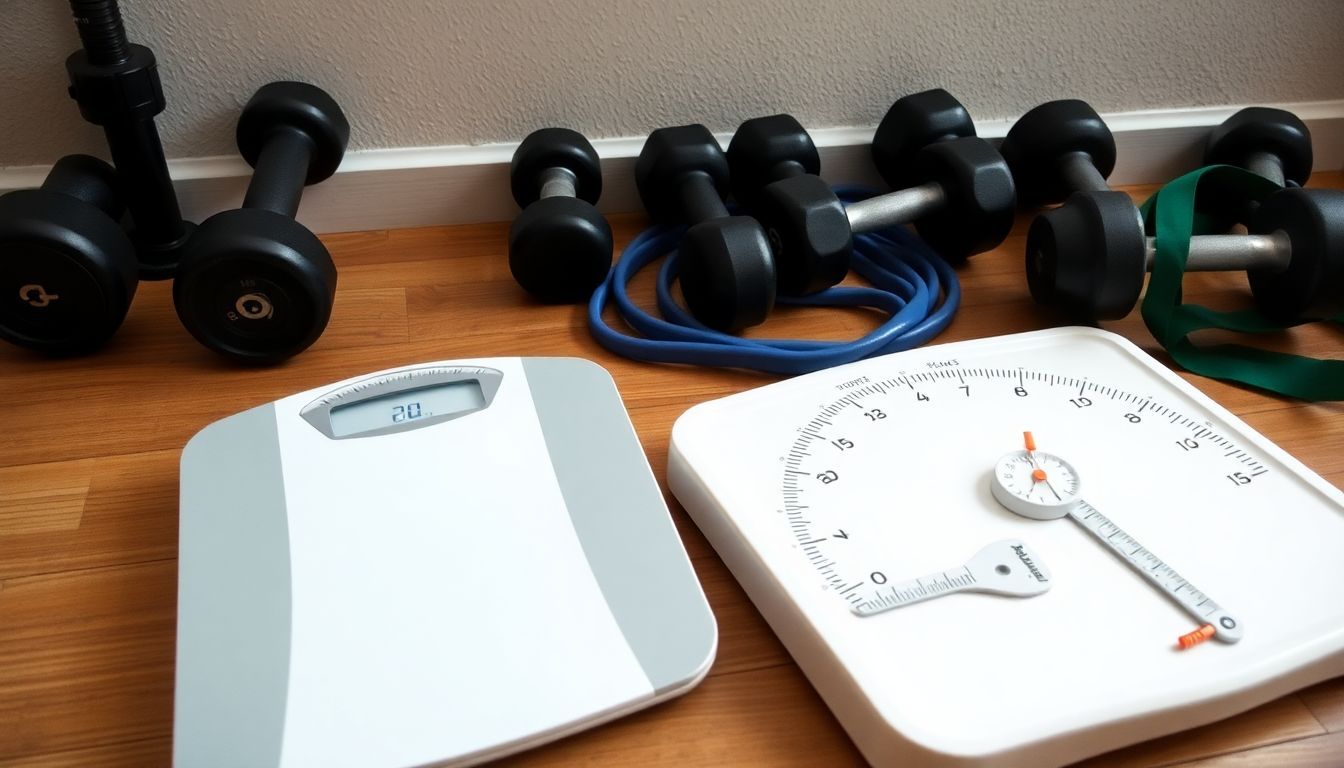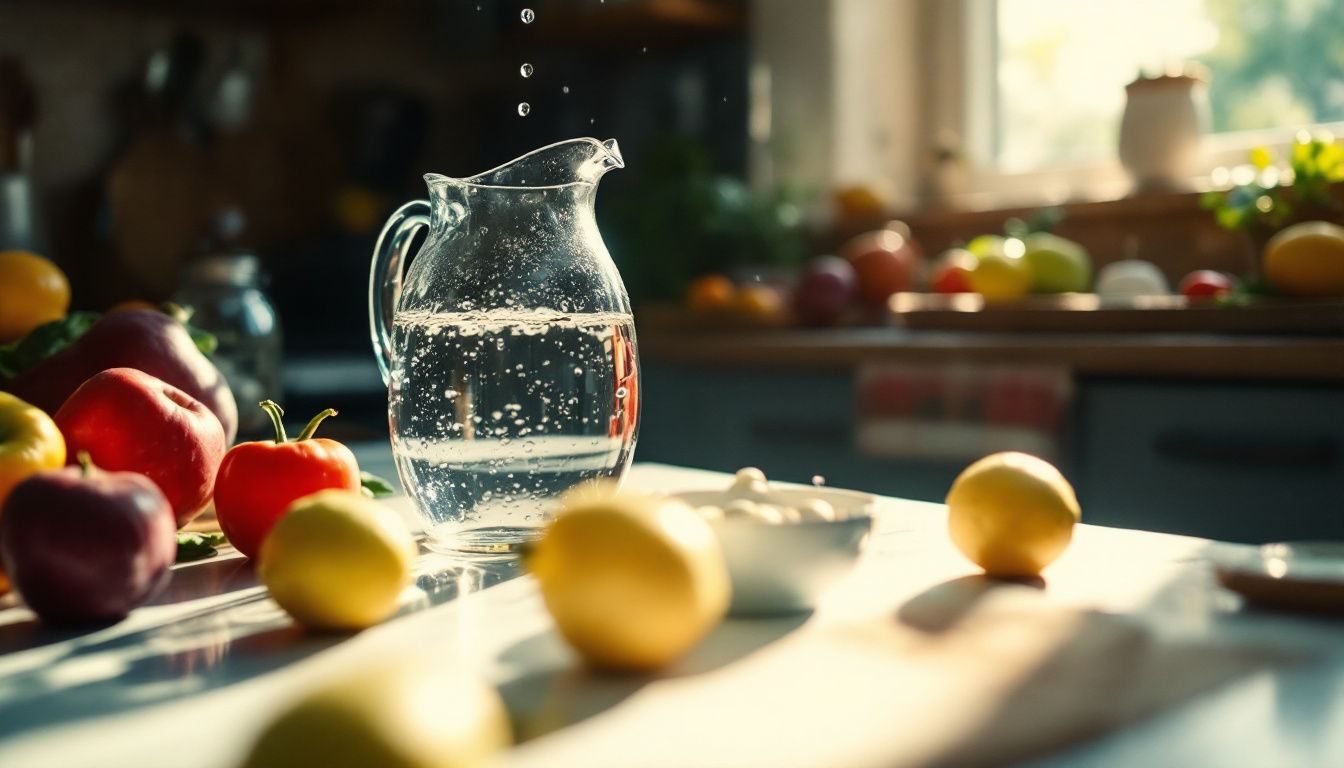Trying to lose weight can feel confusing. You step on the scale, and it goes down—but is it fat loss or just water weight? Many diets cause quick changes in water retention, not body fat.
Thank you for reading this post, don't forget to subscribe!This post will help you understand the truth about dieting and how to focus on fat loss. Keep reading!
Key Takeaways
- Weight loss can include fat, water, and muscle. Fat loss is healthier and reduces risks of heart disease and diabetes.
- Water weight drops quickly on low-carb diets because glycogen stores release water (3 grams per gram of glycogen). High sodium also raises water retention.
- Protect muscles by eating enough protein (0.8g/kg body weight) and doing strength exercises three times a week.
- Stay hydrated to support fat burning and avoid cutting too much water, which harms health and exercise performance.
- Track progress with body composition tools instead of only using scales to measure changes accurately.
Weight Loss vs. Fat Loss: Understanding the Difference

Losing weight means shedding pounds from your body, but that can include fat, water, and even muscle. Fat loss, on the other hand, targets reducing body fat specifically. A high ratio of body fat to muscle has links to chronic diseases like heart disease and diabetes.
Standard scales can’t show if you’ve lost muscle or just water weight. Body composition tools like body fat scales or skinfold calipers help measure fat mass versus lean mass. Losing muscle instead of preserving it lowers your resting calorie burn, making weight regain easier over time…
That’s why focusing on keeping muscle is so important during dieting.
Next: The Role of Water Weight in Dieting
The Role of Water Weight in Dieting
Water weight makes up about 50 to 60% of your total body weight. Much of this comes from stored water in glycogen, a type of energy your body uses. For every gram of glycogen, the body holds onto three grams of water.
Diets like low-carb diets reduce these glycogen stores and cause rapid water loss. This is why people often lose weight quickly on such plans—it’s mainly water leaving the body, not fat.
High sodium intake also increases water retention by making you hold excess fluids. Processed foods and salty snacks are common culprits. Hormonal changes can add to this issue, especially during menstruation in women.
Regular physical activity helps sweat out the extra fluid and improves circulation. Drinking plenty of clean, fresh water might sound strange but it also supports flushing out retained fluid naturally!
How to Focus on Fat Loss Instead of Water or Muscle Loss
Fat loss should be the goal, not just losing water or muscle. Simple changes in your diet and exercise can help target body fat effectively.
- Eat enough protein to protect muscle mass. Aim for 0.8 grams per kilogram of body weight daily. For example, men need about 56 grams, and women need around 46 grams based on dietary guidelines.
- Include resistance training like weight lifting or strength exercises. Studies show older adults retained 93% more muscle while on a calorie-restricted diet when exercising three times weekly.
- Create a calorie deficit by reducing food intake but avoid extreme diets that cut too many calories quickly. Use healthy foods like fruits, vegetables, whole grains, lean proteins, and good fats to stay full and balanced.
- Limit sodium intake to reduce water retention rather than targeting fat loss with quick fixes like low-carb diets alone. High sodium can make water weight fluctuate greatly.
- Stay hydrated since cutting too much water can affect exercise performance and overall health. Proper hydration supports fat metabolism as well.
- Exercise regularly with at least 150 minutes of moderate activity weekly and two days of muscle-strengthening activities per CDC recommendations.
- Keep track of your progress using body composition metrics instead of focusing solely on scale weight or BMI to avoid misleading results from water shifts.
Conclusion
Losing weight doesn’t always mean losing fat. Your body can shed water or muscle instead, which isn’t ideal for long-term health. Focus on sustainable habits like eating enough protein, strength training, and keeping a balanced calorie deficit.
These steps help protect your muscles while targeting fat loss. Take care of your body—it deserves the best approach to healthy change!
References
- https://www.healthline.com/nutrition/weight-loss-vs-fat-loss
- https://www.weightwatchers.com/us/blog/weight-loss/fat-loss-vs-weight-loss?srsltid=AfmBOopFuw4c9FjhUMrUOPVQDCJnGiqP_YEIP47ofv5y1qosN2XdSqPk (2023-08-28)
- https://www.medicalnewstoday.com/articles/320603
- https://pmc.ncbi.nlm.nih.gov/articles/PMC4121911/
- https://www.medicalnewstoday.com/articles/weight-loss-vs-fat-loss (2021-08-31)
